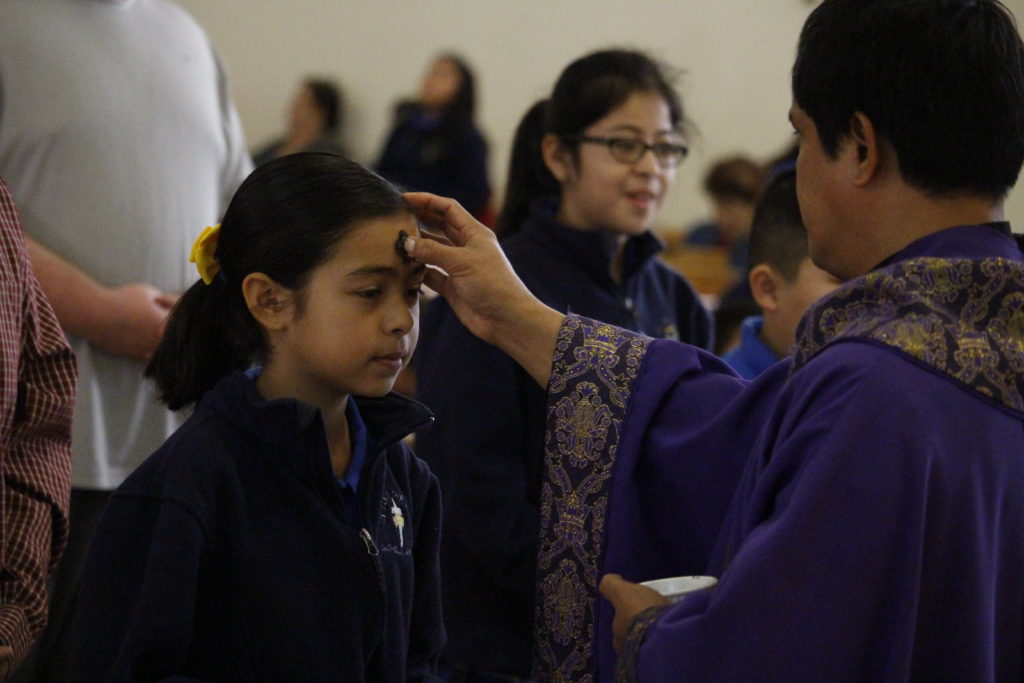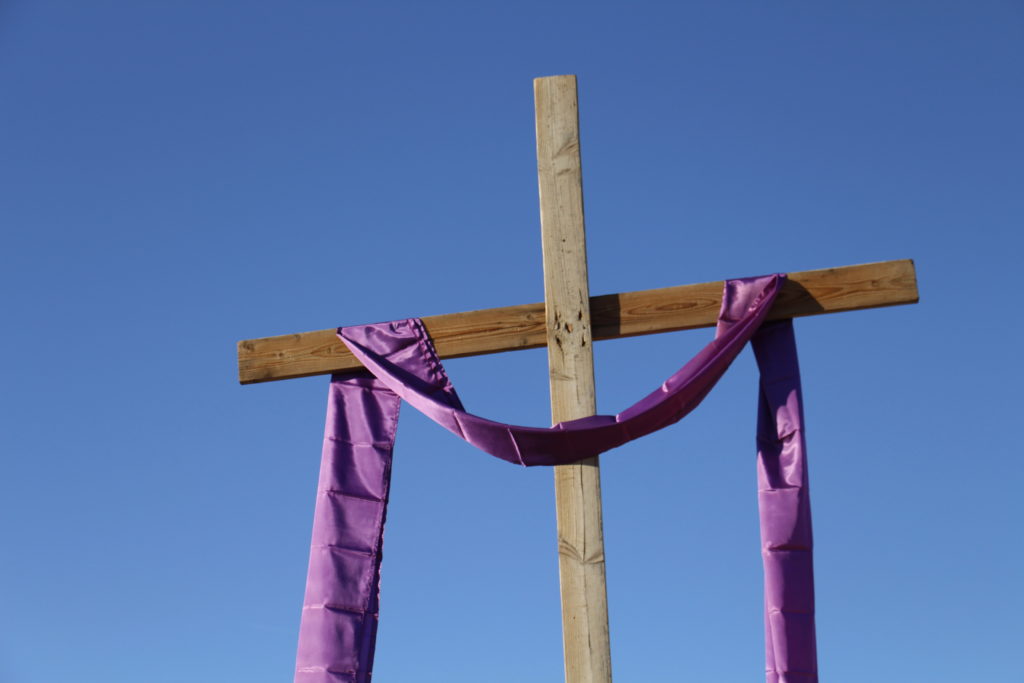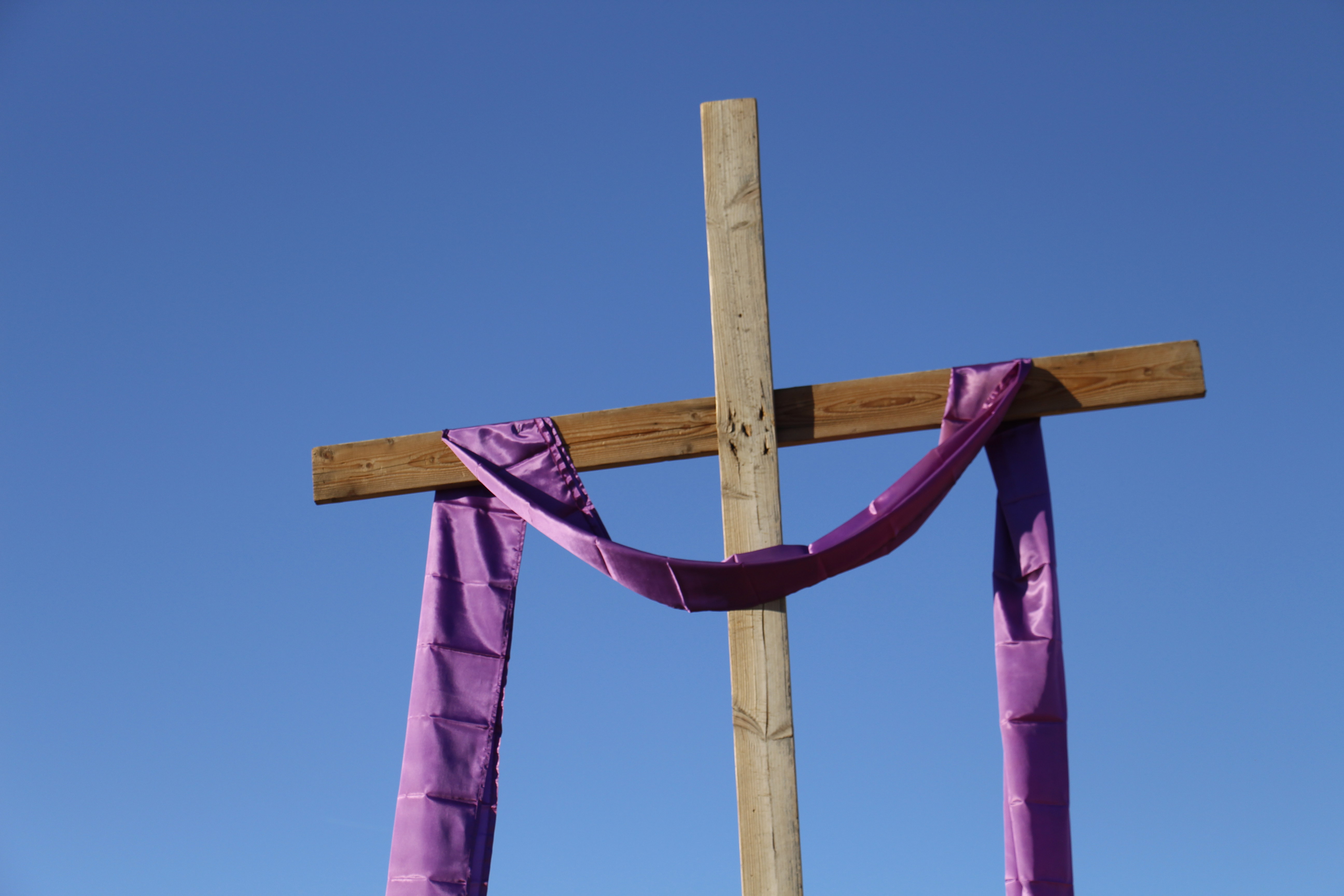
The humble gesture of being signed with a cross of ashes is a public expression of penance and opens the season of Lent.
“We begin with Ash Wednesday, remembering we are dust and to dust we shall return,” said Fr. Don Kline, pastor of St. Joan of Arc Parish. “It’s a reminder of own humanity, frailty and dependence on God for our very life.”
Lent exists for the sake of Easter; a 40-day pilgrimage where the faithful remember, celebrate and participate in Christ’s life, death and triumphant resurrection.
“We look to Easter as the pinnacle of our liturgical year because it’s when our salvation was granted through His resurrection,” Fr. Kline said.
[quote_box_right]
Lent
U.S. Bishops’ 40 Days of Mercy
Corporal and spiritual works of mercy
[/quote_box_right]
Particularly in the Year of Mercy, Pope Francis has called all Catholics, in a special way, to a deepening of their Lenten practices; he called for active listening to the Word of God and practicing acts of mercy.
In paragraph 17 of the papal bull, “Misericordiae Vultus,” the pope wrote: “The season of Lent during this Jubilee Year should also be lived more intensely as a privileged moment to celebrate and experience God’s mercy.”
Throughout the document the Holy Father urges the faithful to be a sign of Christ’s forgiveness and love to others.
“In this Jubilee Year, may the Church echo the word of God that resounds strong and clear as a message and a sign of pardon, strength, aid, and love. May she never tire of extending mercy, and be ever patient in offering compassion and comfort.”
Because Lent is a penitential time to prepare the heart to receive God’s graces, for many people it becomes authentic through personal sacrifices.
“You can ask yourself, ‘What is the goal of Lent and how am I going to get there?’ but the more important question would be ‘What is God asking me to do to get there?’” said Fr. Zygmunt Mazanowski, parochial vicar of St. John the Baptist Parish in Laveen and St. Peter Parish in Bapchule and their respective missions on the Native American reservations.
Traditionally, this is answered through the Lenten disciplines of prayer, fasting and almsgiving, which are opportunities to grow spiritually toward God and others.

Since the days of the early Church, Friday has been a traditional day of fasting because it is the day of the Lord’s death.
[quote_box_right]
Resources from the U.S. Bishops
[/quote_box_right]
The regulations on fast and abstinence are:
Fasting: On Ash Wednesday and Good Friday, those who are 18 but not yet 59 are allowed only one full meal. Two smaller meals are allowed as needed, but eating solid foods between meals is not permitted.
Abstinence from meat: Those who are 14 years of age and older are to abstain from meat on Ash Wednesday and all the Fridays of Lent.
The Church calls upon each person to do some fasting during Lent, adapted to each person. Anyone with health reasons who can’t fast can “fast” from something else, such as television or other forms of entertainment.
Fr. Kline offers ways to make Lent more personal, saying it’s more about the experience and less about the expectations.
Prayer: Go for a spiritual tune up and try different personal devotions; go to Stations of the Cross, try attending one Mass during the week, learn the Rosary, go to Adoration, get to know the diocese and visit a different church or make a personal “desert day” of prayer and separate yourself.
Fasting: Serve simple meals, skip snacks. Fasting is meant to create a spiritual hunger. When there is “physical deprivation” from things like food, it creates a longing not just for food but the realization of the provider of all food and, hopefully, a spiritual longing that only He can fulfill.
Almsgiving: Give food, money or clothing to someone else. “Everything I have received is a gift and as I receive I’m called to give,” Fr. Kline said. “It’s recognizing the abundance God has given to us. We’re all needy. We’re all beggars, but we don’t all recognize everything comes from God. He gives us all we need.”
Fr. Kline said these three pillars of Lent come directly from Scripture and it’s really about a relationship with Jesus.
“These are just words unless they are put into action and they are not suggestions, they are opportunities to grow in relationship with our Lord,” he said.







